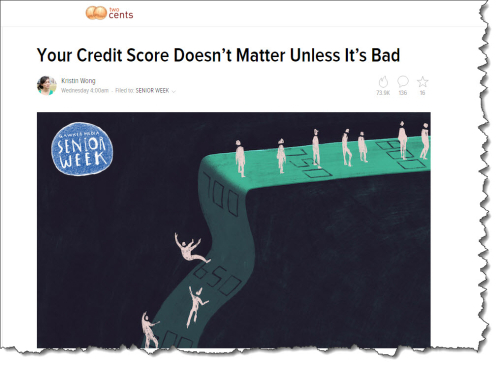���Perfect��� Credit is Not as Important as Credit That is Not ���Bad���
One blogger over at Lifehacker.com has revealed a surprising (to many) truth about credit: While it is important to have credit that is not poor, worrying about having a score that is in the stratosphere is a waste of time.
Kristin Wong has penned a piece entitled, ���Your Credit Score Doesn���t Matter Unless It���s Bad,��� in which she details her not-so-amazing experiences as a person going through life with a basically-pristine score (she self-declares a score of ���close to 800���). Much to her chagrin, she found, as do a lot of young adults with great credit when they start shopping out the biggest of big ticket items, that while bad credit will always be a disqualifier from quality rates, having basically perfect credit is not of any particular benefit.
For example, Wong details that her fantastic score was of very limited value when she went house-shopping with her fianc��. While his score (according to Wong) was about 100 points lower than hers, qualifying with her as the sole borrower���and losing out on an entire income source���saw a rate improvement of just six-tenths of a percent (4.2% vs. 4.8%). In a case like this, the relatively small rate improvement simply is not worth the absence of a second borrower���s income.
Additionally, as Wong discusses, in the world of car-buying, with basically everyone needing a car and so many people lugging around checkered credit histories, the car finance industry has essentially been forced to lower its expectations. This is especially apparent in the case of less expensive cars, the purchase of which results in car payments of a size that really anyone can afford. In a case like that, having ���perfect��� credit won���t really be of any value.
Don���t take the wrong message from this. You want your credit to be as good as it can be, but it���s also worth remembering that there is a ���diminishing returns��� effect that becomes very pronounced once your score goes much over 700. Do the legwork necessary to make sure your score is well out of the gutter, but don���t feel it necessary to kill yourself in order to realize a score of, say, 800. The investment of time and energy just isn���t worth it, from a standpoint of practicality.
By Robert G. Yetman, Jr. Editor At Large




